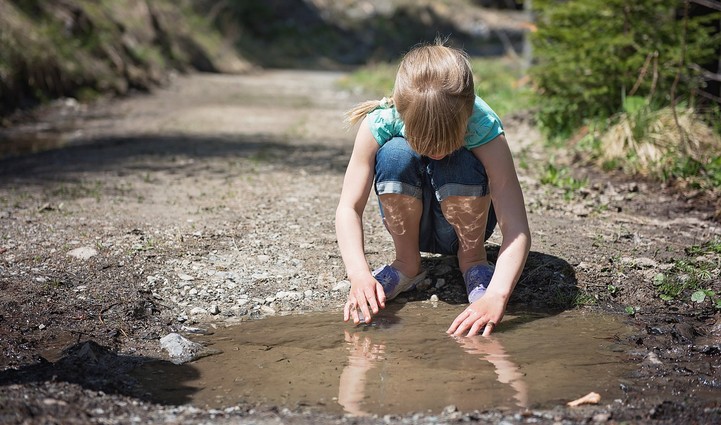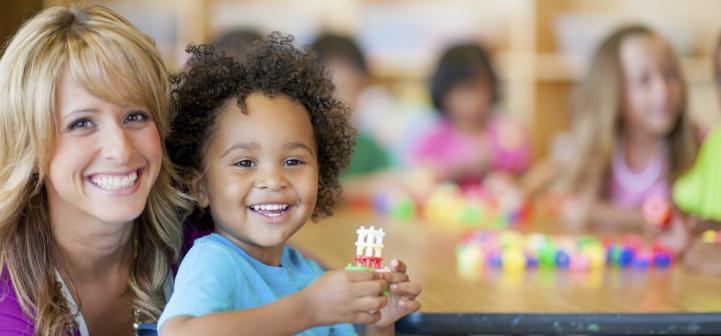
Beginning in infancy, children in child care build their knowledge of the world around them through scientific exploration. “Wonder, investigation and discovery” are three words to describe science in young children. Child care providers can encourage and aid developing science knowledge in many simple ways.
In order to promote sensory awareness in children, child care providers may have to overcome the tendency to think about the world instead of experiencing it. We need to become toddlers again and discover wonder in every raindrop, in every leaf, in every passing butterfly.
Emphasize sensory experience. Encourage children to see, taste, smell, hear and feel. Avoid distracting them with questions while they are involved in sensory exploration. If they start to talk, gently turn their attention back to what they are seeing, tasting, smelling, hearing or feeling. Point out that some things are dangerous to sniff or taste. Following the experience, encourage children to think and talk about what they discovered. Use a rich, descriptive vocabulary to describe their experiences. Introduce words they can use to describe what they see, taste, smell, hear and feel. Keep in mind, though, that words are poor substitutes for experience.
Discovering the Natural World through Teachable Moments
Take advantage of unplanned experiences to involve children in sensory exploration. When you go for walks, encourage children to explore within safe and reasonable limits. What is under that nearby rock? How do the leaves smell? How does the bark from different trees feel? Stop for a moment and listen. Can they hear the trees shifting in the wind, the birds overhead, the sounds of the city in the distance?
Show children how to become involved in sense-pleasure play without altering or destroying the environment. Do not tear bark off a tree, pull up wild flowers or remove rocks. Return everything; destroy nothing.
Sensory exploration involves letting go to become fully involved, then pulling back slightly to reflect on the experience. Children love to explore the world around them. Child care providers can help with science learning through hands-on activities that encourage them to learn from their senses.
For More Information
To learn more about science and nature in child care settings, check out the following eXtension Alliance for Better Child Care articles. If you are looking for specific science or sensory activities, check out the Hands-on Activities for Child Care database.
